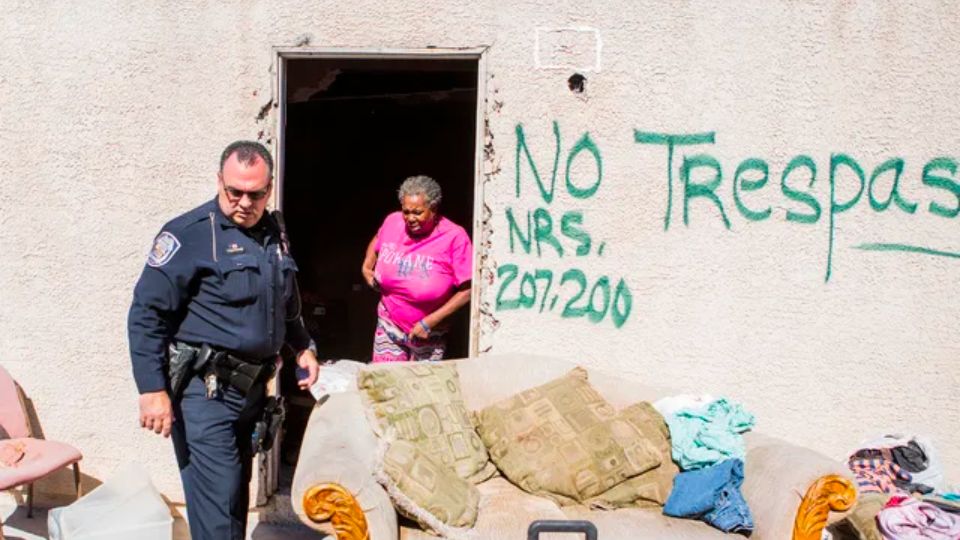Nevada has a significant homeless population, prompting major cities such as Las Vegas to implement local laws in an effort to address the issue. In Nevada, property owners may encounter an unexpected situation when they find someone residing on their property without permission. It is important to be aware that these individuals are entitled to certain legal protections, commonly referred to as squatter’s rights. Today, we will delve into the intricacies of squatter’s rights in Las Vegas and Nevada, exploring how they function and what they entail.
Squatters vs. Trespassers Rights in Nevada
It is important to distinguish between squatting and trespassing. There is often confusion surrounding them, but the court system treats them differently. An individual who occupies a property without legal ownership, commonly known as a squatter, may or may not be aware of the legal implications of their actions. An individual who enters a property despite being aware that they are not welcome is considered a trespasser. In the eyes of the law, squatting and trespassing are treated differently. Squatting is considered a civil matter, while trespassing is seen as a criminal offense.
How Can Squatters Claim Adverse Possession in Nevada?
In a fascinating twist, individuals who have no legal claim to a property can actually gain ownership over time through a process known as adverse possession. In Nevada, it is possible for a squatter to assert adverse possession rights after a relatively short period of five years, provided that they have diligently fulfilled their obligation of paying property taxes throughout this duration.
After a period of five years under occupation and consistent payments to the local government, the squatter is now entitled to legally claim the property without having to buy it from the original owners. Additionally, certain conditions must be met:
- Continuous: In order to claim adverse possession, individuals are required to reside on the property for a minimum of five years without any periods of vacancy and subsequent return.
- Actual: In order to demonstrate their authority over the property, individuals are required to carry out regular maintenance and implement necessary improvements.
- Open and Notorious: It is evident to all visitors that there is a person residing on the premises, and their presence cannot be disguised or concealed.
- Exclusive: A single occupant is required for the squatter, and they are not allowed to reside in the area with a larger group.
- Hostile: The residence of the squatter is causing a direct conflict with the rights of the original owner.
If the individual fulfills the specified criteria and has consistently fulfilled their tax obligations for the duration of their occupancy (or at least the previous five years), they are entitled to assert a right to adverse possession.
Also Read: Here is New York Sublet Laws and Legality Guide in 2024 that You Must Need to Know
Evict Squatters in Nevada
A new law has been enacted that grants police the authority to apprehend individuals who engage in unlawful occupancy. This offense is now classified as a gross misdemeanor. If you happen to come across an unwelcome individual on your premises, simply reach out to the authorities for assistance. In many instances, authorities have the power to apprehend and remove the individual occupying the property unlawfully, enabling you to submit a formal Notice of Retaking possession.
Another option available to you is to file a Changing of Locks and Submission of Posted Notice. This action will enable you to take necessary measures to prevent the squatter from coming back. If individuals attempt to return, they risk being apprehended once more and potentially serving a prison sentence of up to one year.
In cases where the police are unable to make an arrest, an alternative course of action is to serve the squatter with a 4-day notice to surrender. This notice provides them with a four-day window to either vacate the property voluntarily or contest the eviction in a court of law. According to reports, the process of evicting a squatter in Nevada typically takes anywhere from 48 hours to a week.



Leave a Reply